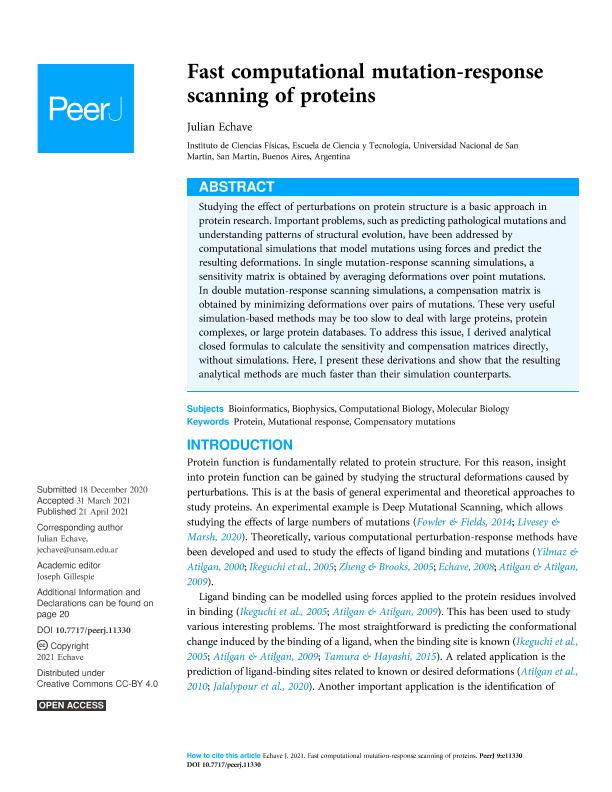Artículo
Fast computational mutation-response scanning of proteins
Fecha de publicación:
21/04/2021
Editorial:
PeerJ
Revista:
PeerJ Life & Environment
ISSN:
2167-8359
Idioma:
Inglés
Tipo de recurso:
Artículo publicado
Clasificación temática:
Resumen
Studying the effect of perturbations on protein structure is a basic approach in protein research. Important problems, such as predicting pathological mutations and understanding patterns of structural evolution, have been addressed by computational simulations that model mutations using forces and predict the resulting deformations. In single mutation-response scanning simulations, a sensitivity matrix is obtained by averaging deformations over point mutations. In double mutation-response scanning simulations, a compensation matrix is obtained by minimizing deformations over pairs of mutations. These very useful simulation-based methods may be too slow to deal with large proteins, protein complexes, or large protein databases. To address this issue, I derived analytical closed formulas to calculate the sensitivity and compensation matrices directly, without simulations. Here, I present these derivations and show that the resulting analytical methods are much faster than their simulation counterparts.
Palabras clave:
Protein
,
Mutational response
,
Model
,
Compensatory mutations
Archivos asociados
Licencia
Identificadores
Colecciones
Articulos (ICIFI)
Articulos de INSTITUTO DE CIENCIAS FISICAS
Articulos de INSTITUTO DE CIENCIAS FISICAS
Citación
Echave, Julián; Fast computational mutation-response scanning of proteins; PeerJ; PeerJ Life & Environment; 9; 21-4-2021; 1-22
Compartir
Altmétricas




